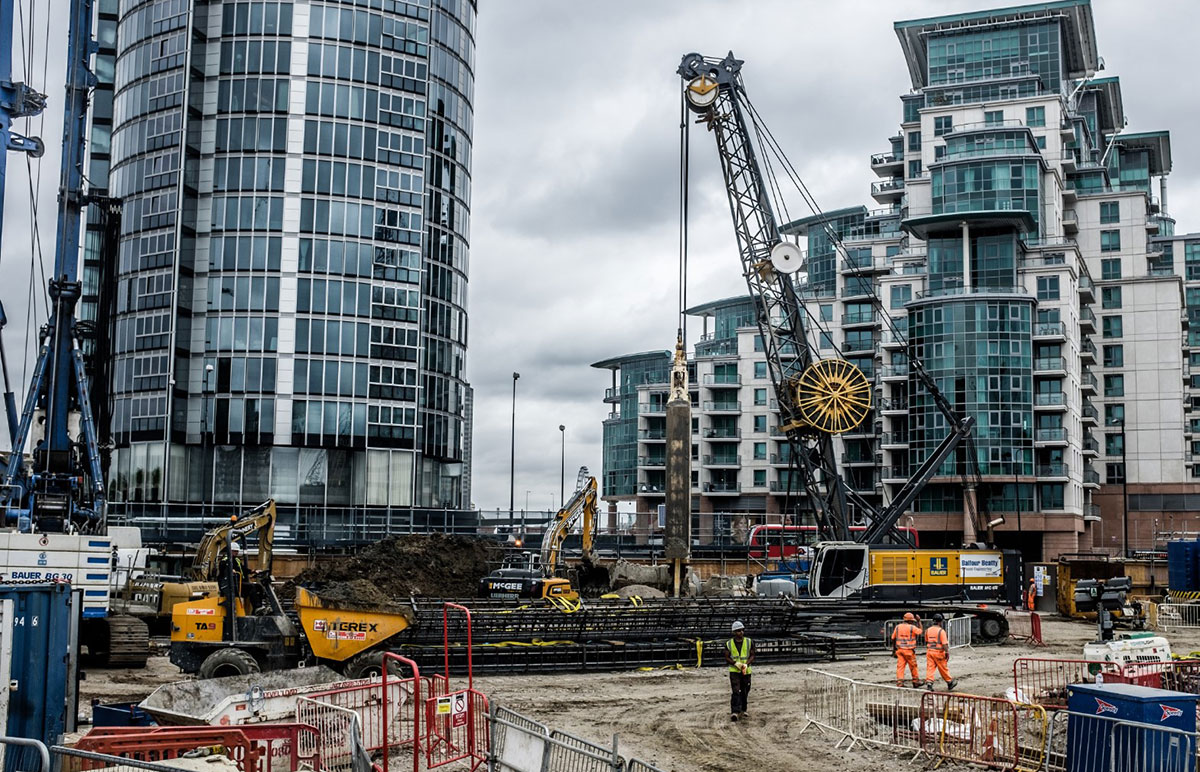See This Report about Geotheta
See This Report about Geotheta
Blog Article
4 Easy Facts About Geotheta Explained
Table of ContentsGeotheta Things To Know Before You BuyExamine This Report about GeothetaGeotheta for DummiesThe Main Principles Of Geotheta Some Ideas on Geotheta You Need To Know

They perform site examinations, gather samples, carry out lab tests, and analyze information to review the suitability of the ground for building projects - Geo Tech Engineer. Based on their findings, geotechnical designers provide recommendations for foundation style, incline stability, keeping structures, and reduction of geotechnical dangers. They work together with other professionals, such as engineers, architectural engineers, and building teams, to guarantee that geotechnical factors to consider are incorporated into the total project style and implementation
By assessing the actions and residential or commercial properties of dirt and rock, they can identify potential geotechnical hazards such as landslides, dirt settlement, or slope instability. Their know-how helps prevent failures or crashes that might endanger lives and residential property. Here are some in-depth responsibilities and obligations of a geotechnical engineer: Website Examination: Geotechnical designers conduct website investigations to gather data on subsurface problems.
They analyze the information to recognize the residential properties and behavior of the dirt and rock, including their strength, leaks in the structure, compaction qualities, and groundwater conditions. Geotechnical Evaluation and Style: Geotechnical engineers examine the information gathered during site examinations to analyze the security and viability of the site for construction jobs. They do geotechnical estimations and modeling to evaluate variables such as birthing ability, settlement, incline security, side earth pressures, and groundwater circulation.
Not known Factual Statements About Geotheta
Foundation Style: Geotechnical designers play a crucial function in designing structures that can safely support the designated structure. They analyze the soil problems and tons demands to determine the suitable structure type, such as shallow structures (e.g., footings), deep foundations (e.g (https://www.startus.cc/company/geotheta)., heaps), or specialized strategies like dirt improvement. They take into consideration variables such as negotiation limits, birthing capability, and soil-structure interaction to develop optimum foundation designs
They review building strategies, screen website activities, and perform field assessments to verify that the style suggestions are complied with. If unexpected geotechnical problems emerge, they assess the circumstance and give recommendations for remediation or changes to the style. Risk Assessment and you could try this out Reduction: Geotechnical engineers assess geotechnical threats and dangers associated with the task site, such as landslides, liquefaction, or dirt erosion.

Collaboration and Interaction: Geotechnical engineers work very closely with other specialists included in a project, such as architects, architectural engineers, and construction groups. Effective interaction and partnership are necessary to incorporate geotechnical considerations into the general project layout and building procedure. Geotechnical engineers give technical competence, solution inquiries, and make certain that geotechnical demands are fulfilled.
Some Ideas on Geotheta You Should Know
Here are some kinds of geotechnical designers: Structure Engineer: Foundation engineers focus on making and evaluating foundations for structures. They examine the soil problems, lots needs, and site attributes to determine the most suitable foundation kind and layout, such as superficial structures, deep structures, or specialized strategies like pile foundations.
They evaluate the factors influencing slope stability, such as soil properties, groundwater conditions, and incline geometry, and create strategies to avoid slope failures and mitigate risks. Earthquake Designer: Quake designers focus on examining and creating structures to endure seismic forces. They evaluate the seismic risk of a site, evaluate dirt liquefaction potential, and create seismic style criteria to make sure the safety and security and strength of structures during quakes.
They execute area testing, collect samples, and assess the accumulated data to characterize the dirt residential or commercial properties, geologic developments, and groundwater problems at a website. Geotechnical Instrumentation Engineer: Geotechnical instrumentation designers concentrate on tracking and gauging the actions of soil, rock, and structures. They mount and preserve instrumentation systems that monitor variables such as soil settlement, groundwater degrees, slope activities, and structural displacements to analyze performance and provide very early warnings of prospective issues.
Not known Facts About Geotheta
They carry out examinations such as triaxial tests, combination examinations, direct shear tests, and leaks in the structure tests to gather information for geotechnical evaluation and layout. Geosynthetics Engineer: Geosynthetics designers concentrate on the design and application of geosynthetic products, such as geotextiles, geogrids, and geomembranes. They make use of these materials to enhance dirt stability, strengthen inclines, provide drain remedies, and control erosion.
They often tend to be investigatory people, which implies they're intellectual, reflective, and curious. They are curious, methodical, reasonable, analytical, and rational. Some of them are also social, implying they're kind, generous, cooperative, patient, caring, useful, empathetic, tactful, and pleasant - Geo Tech Engineer.
In the workplace atmosphere, geotechnical engineers utilize specialized software tools to execute estimations, produce designs, and assess information. They prepare records, evaluation project specs, communicate with customers and employee, and coordinate project tasks. The workplace setting gives a conducive atmosphere for research, analysis, and collaboration with other specialists included in the project.
How Geotheta can Save You Time, Stress, and Money.
They often visit task sites to carry out site investigations, assess geotechnical problems, and gather data for evaluation. These check outs involve traveling to various locations, in some cases in remote or tough terrains. Geotechnical engineers might carry out dirt tasting, conduct tests, and screen construction tasks to guarantee that the geotechnical facets of the project are being carried out appropriately.
Geotechnical designers likewise function in specialized geotechnical labs. Geotechnical lab designers function extensively in these atmospheres, managing screening tools, operating instruments, and tape-recording data.
Report this page